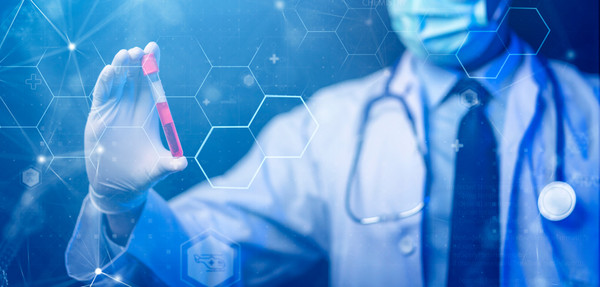An artificial intelligence (AI)-based new drug development boom has erupted among Korean pharmaceutical companies.

According to industry insiders, AI platform makes the new drug development process stable and efficient.
The platform provides services such as analyzing data based on extensive research data and hospital medical records accumulated over a long period and predicting the efficacy of newly found drug candidates.
“The interest in using AI is quite new among Korean companies as previously there were many observations that such deep learning and AI platform technologies were not yet at a stage to be used commercially,” said Lee Jun-soo, an analyst for Prophet Asset Management. “However, as the pace of AI technology development has exceeded market expectation and the technological perfection has greatly increased, recently, a trend to graft AI technology in all industries, including pharmaceutical, manufacturing, finance, and service industries, has emerged.”
Against this background, Korean pharmaceutical companies are also actively seeking the use of AI technology.
In 2022 alone, not only major pharmaceutical companies such as Yuhan Corporation, Daewoong Pharmaceutical, HK inno.N, JW Pharmaceutical, and Dong-A ST, but also mid- to small-sized companies such as Samjin Pharmaceutical, Dongwha Pharmaceutical, Kyungdong Pharmaceutical, Arlico Pharmaceutical, PharmGen Science, and Hyundai Pharmaceutical have joined hands with AI platform companies and started developing new drugs.
Notably, three companies – Daewoong, Arlico, and PharmGen – signed partnership agreements with AI platform companies on Wednesday alone.
Daewoong signed a contract with AZothBio to research and develop a synthetic lethality anticancer drug through artificial intelligence (AI).
Under the agreement, AZothBio plans to use its AI platform to search for synthetic lethality anticancer drug candidates, and Daewoong Pharmaceutical plans to commercialize the candidate substances by conducting efficacy evaluation and clinical development.
Arlico signed a business agreement with Basgen Bio, a genome-based AI drug development company, to develop a combination drug using an AI platform.
Basgen Bio will use DEEPCT, its AI drug development platform, to discover the optimal drug combination required for developing a new drug, and Arlico will verify the derived drug combination before proceeding with the necessary procedures for commercialization.
PharmGen signed a joint research contract with AIGen Drug, an AI platform-based innovative drug development company, to develop new drugs for autoimmune diseases, including inflammatory bowel disease (IBD), using AI.
As pharmaceutical companies are showing interest in developing new AI drugs, the government is also expanding its support in the field.
The Ministry of Science and ICT recently held a meeting to share and review the direction of the innovative new drug discovery project using AI, and discussed ways to revitalize the new drug development ecosystem using AI together with experts from the industry, academia, and research.
During the meeting, ministry officials expressed their view that the new drug development 2.0 era using the AI platform will arrive soon.
By using the AI platform, the government plans to establish a system that can discover new drug candidates and immediately use them for clinical trials and derive tangible results.
The government will select three new research projects from 2022 and 2023. Each research will promote the development of AI public platforms that can help the process of developing new drug candidates using AI.
After strengthening the convenience, accessibility, and usability of the public platform, the government plans to provide the completed platform by 2026.
“Once the public platform is activated, the development of new drugs using AI will spread not only to the industry, but also to universities and research institutes, thereby accelerating innovative drug development in Korea,” said Lee Chang-yun Lee, the director of R&D policy at Ministry of Science and ICT.

